By: Nicholas Fischer, RD
One of the most common mistakes I see with athletes of all kinds is under fueling. This mistake is not just eating too little food/calories or skipping meal, but it can also mean that an athlete is eating a diet that lacks balance or adequate nutrient, vitamin and mineral intake. So, for athletes I like for them to think about their diet like their training plan.
A proper training plan will consist of enough training to grow and develop the athlete’s performance but not too much to where the athletes is overtrained. In addition, the training plan will have a consistent pattern as well as have a variety of workouts to make for a well-rounded athlete and address weaknesses. A diet should be similar and provide enough food through the day to fuel and recover while providing enough variety to fill nutrient needs by including foods that they enjoy. So let us look at a runner I worked with, what his diet looked like and how we shifted it toward a more adequate diet.
Fake name for the runner: Dawson.
Dawson’s diet was more of a scattered diet with no real planning aside from what massive meal he would eat after a run. A typical day may have looked like this:
Breakfast: Skipped it or had Pop-tarts or cereal with milk
Snacks: Gummy bears or other snack like foods or energy bar
Lunch: Sandwich with granola bar or some other snack like food or a protein bar. Or he would get something like a Chipotle burrito
Snacks: Goldfish crackers
Dinner after a run: Larger portion of meat and carbohydrate option that his family would eat for dinner. Vegetables were included, but not more than a cup.
Snack: Snack like foods or dessert
For Dawson, we shifted our focus toward a more balanced diet by spreading out his food more evenly through the day and better food options. We also focused on meal planning and prepping.
A runner’s diet should consist mostly of carbohydrate options, say 50% or more depending on their training and food preferences. Think of foods like whole grains more often than refined grains, beans, starchy vegetable, and fruits and vegetables. Protein and fat would then make up the rest. For this example, let us just settle with the rest of their food being 25% protein and 25% fat. Think of foods like meat, seafoods, eggs, dairy and dairy alternatives, vegetarian protein options like tofu or seitan. Snack foods can also be included, but less highly processed options are better (this is a whole other topic).
Very general sample menu with a 6-mile run after work in mid zone 3 to high zone 3, tempo pace. Hydrating with water through the day. Dawson was about 150 pounds.
Breakfast: Convenience is very appropriate: 1 cup yogurt + 2 pieces whole grain toast (not diet bread, get bread with more carbs) with 1-2 tbsp. peanut butter and fruit
Lunch: Leftovers from dinner the night before: 4-6 oz meatloaf with a 1-2 cups of rice and a side of mixed vegetables
Afternoon snack/pre run fuel: Carbohydrate focused with less protein, fat, and fiber. Half your weight in grams of carbohydrates at least. 2-3 hours before the run. Sandwich with 1-2 tbsp peanut butter and extra jelly and a granola bar
Run: Hydrating during the run with water or sports drink depending on the time of the run and other conditions.
Post run meal/dinner: Carbohydrate focused with a more protein than the pre workout meal, nothing to crazy. Half your weight in grams carbohydrates or up to 1.5 times that number, ¼ - 1/3 that in grams of protein. Chicken pasta primavera with 4 oz chicken and 1-2 cups pasta with a side salad and dressing and croutons on the salad.
Evening snack: Frosted mini wheats and milk
Again, this is very general menu just to help show a day of eating that includes enough food through the day and include food variety with foods that many people like. Depending on someone’s nutrient needs and food preferences their diet will be different. But the end goal is the same. Eating enough with the foods that you like.
Another benefit of spreading out your diet is that you don’t get as hungry. This helps people make better food choices as they don’t become as ravenous. So not only does a diet like this help to recover from and fuel workout it also helps people to make better food choices more consistently. And like with training consistent practice makes for consistent performance.
Author: Nicholas Fischer, RD Nick Fischer is a registered dietitian who is responsible for providing nutrition education for bariatric patients. Nick is passionate about being part of our bariatric services team because he likes helping patients come up with simple solutions for meals that taste good and are also healthy. Nick is also a valued member of the MedStar Health running medicine program.


